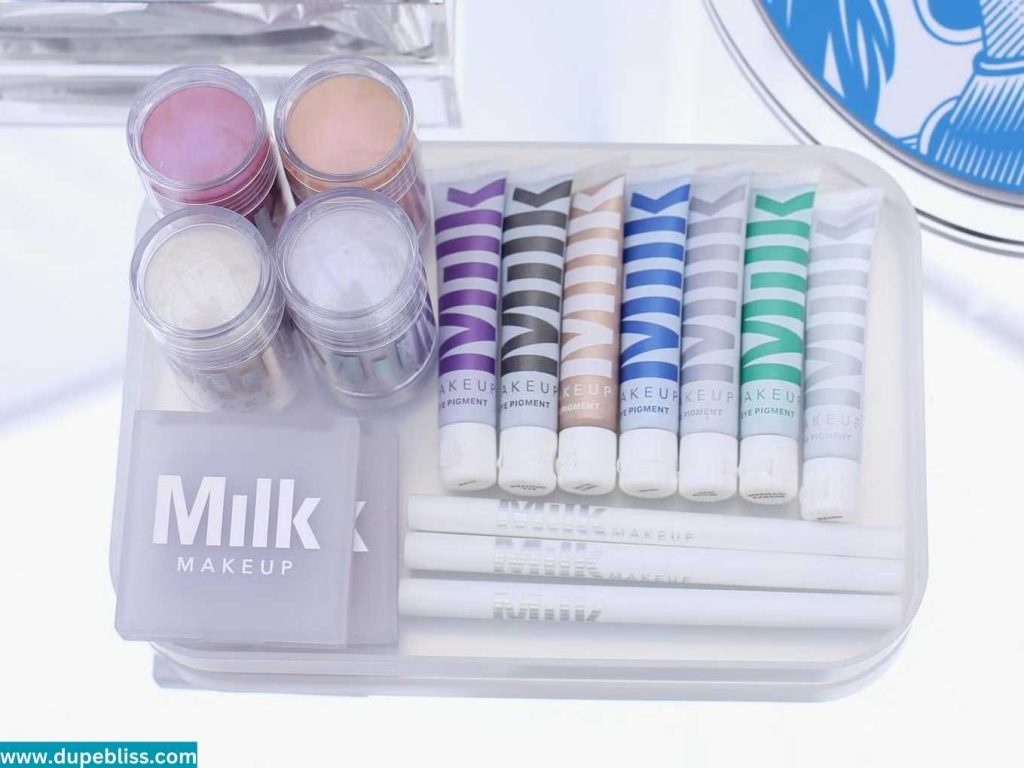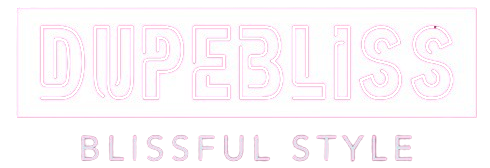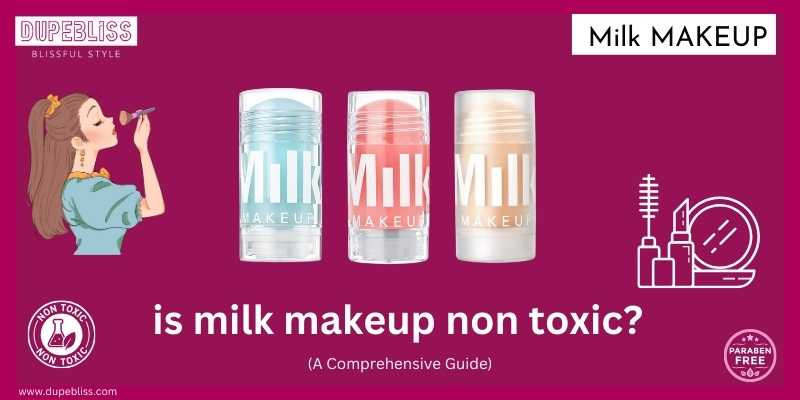In today’s beauty landscape, consumers are increasingly turning to non-toxic cosmetics, and looking for products that are safe for their skin and the environment One brand famous for its beauty qualities is “Milk Beauty”. Taking a minimalist approach and claiming to be non-toxic, Milk Makeup has beauty enthusiasts curious. But, is Milk Makeup non-toxic? Let’s dig deeper into the details to discover the truth behind this statement.
What is Milk Makeup?
Milk Makeup is a beauty brand that prides itself on creating easy-to-use, multi-purpose products with clean ingredients. Launched in 2016, the brand quickly gained a loyal following for its innovative packaging and inclusive approach to beauty.
Understanding the Term “Non-Toxic”
Before we explore Milk Makeup’s non-toxic claims, it’s essential to clarify what exactly “non-toxic” means in the context of makeup. Non-toxic makeup implies products that do not contain harmful or potentially harmful ingredients such as parabens, sulfates, phthalates, and synthetic fragrances, among others. These ingredients have been linked to various health concerns, prompting consumers to seek safer alternatives.
Assessing Milk Makeup’s Claims
Milk Makeup markets itself as a clean beauty brand, emphasizing its use of natural ingredients and commitment to cruelty-free practices. However, the definition of “clean” can vary widely across brands, making it essential to scrutinize Milk Makeup’s ingredient list and manufacturing processes.
Milk Makeup’s Ingredient Philosophy
Milk Makeup has created a niche for itself in the beauty industry by championing clean and transparent beauty. The brand emphasizes the use of natural ingredients and avoids toxins commonly found in traditional cosmetics. Milk Makeup products typically have a short list of ingredients, focusing on vegan and cruelty-free cuisine that meets stakeholder values
Ingredients in Milk Makeup Products
To determine whether Milk Makeup is truly non-toxic, let’s examine some of the key ingredients commonly found in their products:
- Hemp-Derived Cannabis Seed Oil: Known for its hydrating and nourishing properties, hemp seed oil is a popular ingredient in skincare products. Milk Makeup often incorporates hemp-derived cannabis seed oil into its formulations, promoting moisturized and balanced skin.
- Shea Butter: Another staple in Milk Makeup products, shea butter is rich in vitamins and fatty acids, making it a potent moisturizer. It helps to soothe and soften the skin without clogging pores and is suitable for various skin types.
- Jojoba Oil: Jojoba oil closely resembles the skin’s natural sebum, making it an excellent choice for hydration. Milk Makeup utilizes jojoba oil in many of its products to provide long-lasting moisture and a smooth finish.
- Natural Extracts: Milk Makeup often incorporates botanical extracts such as watermelon, peach, and avocado into its formulations. These natural ingredients offer antioxidant benefits and contribute to the products’ pleasant scents.
- Hyaluronic Acid: Milk Makeup incorporates hyaluronic acid into many skincare products for its hydrating and plumping effects. This powerhouse ingredient attracts moisture to the skin, leaving it feeling supple and rejuvenated.
Addressing Concerns and Criticisms
Despite Milk Makeup’s efforts to prioritize natural and non-toxic ingredients, some critics raise concerns about certain ingredients in its products even though the brand avoids controversial ingredients and uses synthetic ingredients and preservatives in some chemicals. But Milk Makeup’s commitment to transparency and product integrity resonates with many consumers, providing reassurance amidst the challenges of the beauty industry.
Navigating Clean Beauty Certifications
In the absence of formal codes of clean beauty, consumers often rely on third-party certifications to verify product safety and effectiveness. While Milk Makeup does not hold a specific Clean Beauty credential, the commitment to transparency and ingredient integrity is in line with the principles of Clean Beauty. This commitment reflects a broader shift towards a more sustainable and health-conscious cosmetic industry.
Compliance of Milk Makeup with Regulatory Standards

Milk Makeup, like any cosmetics company, must comply with regulatory standards set by various authorities to ensure the safety and quality of its products. Here’s how Milk Makeup typically ensures compliance with these standards:
FDA Regulations: In the United States, the Food and Drug Administration (FDA) regulates cosmetics under the Federal Food, Drug, and Cosmetic Act (FD&C Act) and the Fair Packaging and Labeling Act (FPLA). Milk Makeup ensures that its products meet FDA regulations regarding ingredient safety, labeling requirements, and manufacturing practices.
Good Manufacturing Practices (GMP): Milk Makeup follows GMP guidelines to ensure that its products are manufactured, packaged, and stored in a manner that prevents contamination, ensures product quality, and maintains consistency. This includes maintaining clean facilities, properly training staff, and documenting manufacturing processes.
Environmental Impact of Milk Makeup
Milk Makeup emphasizes environmental responsibility through various projects. They prioritize sustainability by offering vegan and cruelty-free products, reducing packaging, and using environmentally friendly materials whenever possible In addition they support the environment and promote recycling programs. Through these efforts, Milk Makeup seeks to reduce its footprint and better support the environment.
Customer Reviews and Experiences
Consumer feedback plays an important role in evaluating the effectiveness and safety of beauty products. By collecting and analyzing data from Milk Makeup customers, we can gain insight into their experiences with the brand’s products. Good reviews can highlight how effective, easy-to-use, and skin-friendly Milk Makeup offerings are. However, negative comments or reports of adverse reactions should also be considered when evaluating a brand’s non-toxic claims.
Expert Opinions and Recommendations
Dermatologists, dermatologists, and beauty experts can provide valuable insight into the non-toxicity of milk makeup products. By considering these experts, we can gain a deeper understanding of the brand’s component formulas, safety standards, and overall reliability. Their recommendations can help consumers make informed decisions about whether milk makeup products meet clean beauty standards and preferences.
A Personal Investigation into Milk Makeup’s Non-Toxicity
After investigating Milk Makeup’s non-toxicity, I found their commitment to safety impressive. They avoid harmful substances, hold certifications like Leaping Bunny and PETA, and receive positive customer feedback. Overall, Milk Makeup appears trustworthy for those prioritizing safe beauty products.
Milk Makeup’s transparency policies

Milk Makeup is known for its commitment to transparency in various aspects of its operations, including product formulation, ingredient sourcing, and sustainability initiatives. Here are some key elements of Milk Makeup’s transparency policies:
Ingredient Transparency
Milk Makeup emphasizes transparency about the ingredients in their products. Key ingredients are often clearly listed on the packaging and on their website. Additionally, they strive to avoid the use of potentially harmful ingredients such as parabens, sulfates, and phthalates and offer many vegan and cruelty-free options
Product Information
Milk Makeup provides detailed information about its products, including usage instructions, key features, and benefits. This helps consumers make informed decisions about which products best suit their needs.
Sustainability Efforts
Milk Makeup is committed to sustainability and reducing its environmental footprint. They may disclose information about their sustainability initiatives, such as using recyclable packaging, reducing waste in manufacturing, and sourcing eco-friendly ingredients.
Social Responsibility
Milk Makeup may also emphasize its commitment to social responsibility, such as supporting charitable causes or advocating for social justice issues.
Customer Communication
Milk Makeup may engage with customers through various channels, such as social media, email newsletters, and customer service interactions, to provide updates, answer questions, and address concerns about their products and practices.
Comparing Milk Makeup with Other Brands
To better understand Milk Makeup’s standing in the realm of non-toxic beauty, let’s compare it with similar brands known for their clean formulations:
| Aspect | Milk Makeup | Glossier | Fenty Beauty | ColourPop | NARS | Urban Decay |
| Range | Makeup & Skincare | Minimalist | Diverse | Affordable | Sophisticated | Edgy |
| Values | Vegan, sustainable | Minimalist | Inclusive | Trendy | Luxurious | Edgy, cruelty-free |
| Price | Mid-high | Mid | Mid-high | Affordable | High-end | Mid-high |
| Image | Trendy, innovative | Natural | Glamorous | Trendy, budget | Sophisticated | Edgy, bold |
| Perception | Innovative, transparent | Simplistic | Inclusive | Affordable, quality | Quality, glamour | Bold, edgy |
FAQS
Is Milk Makeup Vegan?
While Milk Makeup offers many vegan options, not all of its products are vegan. Some formulations may contain beeswax or other animal-derived ingredients
Are Milk Makeup products safe for sensitive skin?
Milk Makeup products are generally suitable for sensitive skin, but individual reactions may vary. It’s advisable to patch-test new products before applying them to larger areas of the skin.
Does Milk Makeup test on animals?
No, Milk Makeup is committed to cruelty-free practices and does not test its products on animals. Additionally, the brand does not sell its products in countries where animal testing is required by law.
Are Milk Makeup products environmentally friendly?
While Milk Makeup emphasizes minimalist packaging and cruelty-free practices, its environmental impact may vary depending on factors such as ingredient sourcing and manufacturing processes. The brand continues to explore sustainable initiatives to reduce its carbon footprint.
Final Judgment
In conclusion, Milk Makeup’s dedication to natural, cruelty-free ingredients and avoidance of harmful substances supports its claim of being non-toxic. While not perfect, its efforts signal progress toward a healthier beauty industry. Consumers should prioritize personal values and preferences when choosing products, ensuring they align with their definition of non-toxic beauty.
For more knowledge about perfumes and dupes, you can check on Dupebliss.

